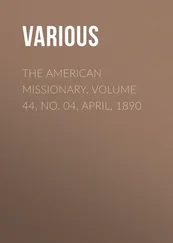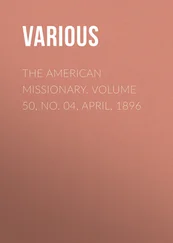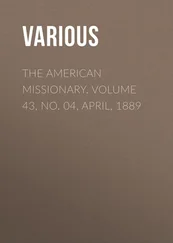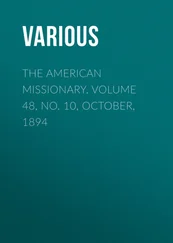Elizabeth Ellet - The Women of The American Revolution, Vol. 2
Здесь есть возможность читать онлайн «Elizabeth Ellet - The Women of The American Revolution, Vol. 2» — ознакомительный отрывок электронной книги совершенно бесплатно, а после прочтения отрывка купить полную версию. В некоторых случаях можно слушать аудио, скачать через торрент в формате fb2 и присутствует краткое содержание. Жанр: foreign_antique, foreign_prose, на английском языке. Описание произведения, (предисловие) а так же отзывы посетителей доступны на портале библиотеки ЛибКат.
- Название:The Women of The American Revolution, Vol. 2
- Автор:
- Жанр:
- Год:неизвестен
- ISBN:нет данных
- Рейтинг книги:5 / 5. Голосов: 1
-
Избранное:Добавить в избранное
- Отзывы:
-
Ваша оценка:
- 100
- 1
- 2
- 3
- 4
- 5
The Women of The American Revolution, Vol. 2: краткое содержание, описание и аннотация
Предлагаем к чтению аннотацию, описание, краткое содержание или предисловие (зависит от того, что написал сам автор книги «The Women of The American Revolution, Vol. 2»). Если вы не нашли необходимую информацию о книге — напишите в комментариях, мы постараемся отыскать её.
The Women of The American Revolution, Vol. 2 — читать онлайн ознакомительный отрывок
Ниже представлен текст книги, разбитый по страницам. Система сохранения места последней прочитанной страницы, позволяет с удобством читать онлайн бесплатно книгу «The Women of The American Revolution, Vol. 2», без необходимости каждый раз заново искать на чём Вы остановились. Поставьте закладку, и сможете в любой момент перейти на страницу, на которой закончили чтение.
Интервал:
Закладка:
Our country offers abundant examples of men who have attained the highest eminence, ascribing all to early maternal influence and training. For the mother of Henry Clay, that great man – the pride and honor of his country – has ever expressed feelings of profound affection and veneration. Though her life afforded no incidents of striking or romantic interest, she was what expresses the perfection of female character – an excellent mother. She was the youngest of two daughters, who were the only children of George and Elizabeth Hudson. Her name also was Elizabeth. She was born in the county of Hanover, in Virginia, in 1750. Her early education was such as was attainable at that period in the colony. In her fifteenth year she was married to John Clay, a preacher of the Baptist denomination, and became the mother of eight children. Mr. Clay died during the war of the Revolution. Some years afterwards, Mrs. Clay contracted a second marriage with Mr. Henry Watkins; and in course of time eight children more were added to her family. The cares devolving upon her, in the charge of so many children, and the superintendence of domestic concerns, of course occupied her time to the exclusion of participation in matters of public interest. She must, however, have borne her share in the agitations and dangers of the time, in behalf of those who claimed her maternal solicitude and guidance.
Her son, Henry, was separated from her when only thirteen years of age, having before that period been occasionally absent from home for months in going to school. In 1792, his step-father removed, with his mother and family, from Hanover County to Woodford County in Kentucky, leaving him at Richmond, in Virginia. He did not again see his mother till the fall of 1797, when he himself emigrated to Kentucky. His estimable and beloved parent died in 1827, having survived most of her children, of whom there are now but four remaining – two by her first, and two by her last marriage.
She was from her youth a member of the Baptist Church, and eminent in piety. Her distinguishing traits of character were energy and industry; and she was most faithful in the performance of all her domestic duties.
XXVIII. MARTHA WILSON
One of the representatives of those times, in which America must ever feel pride, is yet living at the Lakelands, Lake of Otsego, near Cooperstown, New York. She not only retains an accurate and vivid recollection of scenes in the stormy and fearful infancy of the nation on whose vigorous manhood she is permitted to look, but has kept pace in intellectual cultivation, with the advancement of modern days. The grasp of mind that apprehends and appreciates the progress of her country's prosperity and power, gives a deeper interest to her thrilling recital of incidents belonging to its struggle for life. I am particularly favored in having received from her various anecdotes of persons with whom she was intimately acquainted at that period, her reminiscences of whom would form a most valuable contribution to the domestic history of the Revolution.
The subject of this brief sketch is a daughter of the late Colonel Charles Stewart of New Jersey. She was born December 20th, 1758, at Sidney, the residence of her maternal grandfather, Judge Johnston, in the township of Kingwood, and county of Hunterdon, in that State. This old mansion was at that time one of the most stately and aristocratic of the colonial residences in this section of West Jersey. Constructed while the border settlements of the province were still subject to treacherous visits from the Indian, its square and massive walls and heavy portals had reference as well to protection and defence as to "the pride of life;" and for many years, in its earlier days, it was not only the stronghold of the wealthy proprietor, his family and dependants, but the refuge in alarm, for miles around, to the settlers whose humbler abodes were more assailable by the rifle and firebrand of the red man. "The big stone house," as it was designated in the common parlance of the people, was thus long a place of note as a refuge from danger; and not less, in later times, as one for a redress of wrongs, and the punishment of crime; Judge Johnston having been, for more than thirty years previous to the Revolution, the chief magistrate of that section of the colony, holding a court regularly, on Monday of every week, in one of the halls of his dwelling.
It stood in that region of-undulating hill country, between the high mountains of North and the flat sands of South Jersey, of the beauty of which those who fly across the State by railroad at the present day can form no conception: where blue hills and tufted woodlands, winding streams and verdant valleys, often present to the eye in their varied forms and combinations, a perfection of picturesque and rural beauty, which, while it seldom fails to attract the admiration of the passing traveller, fastens upon the heart of the resident with an enduring charm. Finely situated on an elevated terrace, at the confluence of the Capulong and a branch of the Raritan, overhung by extensive and park-like woods, with encircling waters and clusters of grove-covered islets behind, and wide-spread valleys in front, it was regarded in olden times as one of the choicest residences in the State. As the birthplace and home in childhood of the subject of this record, it has attractions of association and memory which cause her affections to revert warmly to it after a pilgrimage, amid other scenes, of well nigh a century.
The old house was accidentally burned down some fifty years ago, and a new, though less imposing, dwelling erected on the same site, by a branch of the Coxe family. This, in its turn, became the resort, for many years, of a circle greatly distinguished for beauty, wit, and cultivated talent; but now, for a long time, vicissitudes of fortune, neglect, desertion, and decay, have accomplished in it their accustomed work; and stripped of its embellishments of taste, despoiled of much of its fine woods, and its majestic single trees, it presents little indication of its former fortunes, and is fallen in its uses to the purposes of a common farm.
Previous to the Revolution, Colonel Stewart resided chiefly at Landsdown, a beautiful property in Kingwood, immediately adjoining the estate of his father-in-law at Sidney. It was here that the later years of the childhood of his daughter were spent; and here, at the early age of thirteen, she was bereaved of her mother – a woman of strong and polished intellect, of a refined and poetical taste, and said to have been the best read female in the province. Till within a short time of Mrs. Stewart's death, the education of her daughter had been exclusively at home. She had been but a brief period at a boarding-school, when summoned to the dying bed of her mother; and it is no slight proof of the mental attainments and maturity of character which she already possessed, that her father, in his bereavement, found her society too necessary to his happiness, and the maternal care which she was called to exercise over her sisters and brothers of a more tender age, too essential to their welfare, to permit her again to resume her place at school. It is chiefly, therefore, to the self-cultivation of an inquiring and philosophic mind, and to association at home and in society, with the intelligent and the wise, that are to be ascribed the rich stores of general information and wide-spread practical knowledge, for which, from early womanhood to the passing day, she has been so highly distinguished, and so justly and extensively honored.
The hospitality of Colonel Stewart was unbounded. His friend Chief Justice Smith of New Jersey has expressed this trait of character in the epitaph upon his tomb – "The friend and the stranger were almost compelled to come in." His house was the resort of the choice spirits in intellect and public influence, of the times; and it was at his table and fireside that his daughter, called at the early age we have mentioned to the responsible position of female head of his family, from 1771 to 1776, imbibed even in childhood from him and his compeers the principles of patriotism and the love of freedom which entitle her name and character to a prominent place among the Women of the Revolution. Colonel Stewart himself had been trained from infancy in the spirit of 1688. His grandfather, Charles Stewart, of Gortlee, a cadet of the Stewarts of Garlies, was an officer of dragoons in the army of William III., and acquitted himself gallantly, at the side of his monarch, in the battle of the Boyne. The demesne which he afterwards possessed, in the north of Ireland, was the reward of his valor; but, in transmitting to his son and his son's son the untrammelled spirit of a Scotch Puritan, who had periled his life in the cause of civil and religious liberty, he conferred upon them a better and more enduring heritage.
Читать дальшеИнтервал:
Закладка:
Похожие книги на «The Women of The American Revolution, Vol. 2»
Представляем Вашему вниманию похожие книги на «The Women of The American Revolution, Vol. 2» списком для выбора. Мы отобрали схожую по названию и смыслу литературу в надежде предоставить читателям больше вариантов отыскать новые, интересные, ещё непрочитанные произведения.
Обсуждение, отзывы о книге «The Women of The American Revolution, Vol. 2» и просто собственные мнения читателей. Оставьте ваши комментарии, напишите, что Вы думаете о произведении, его смысле или главных героях. Укажите что конкретно понравилось, а что нет, и почему Вы так считаете.












